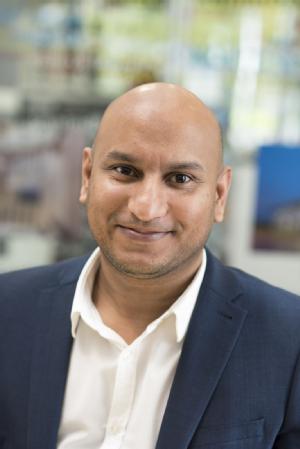Used Electric Vehicles batteries could be used for rickshaws in Bangladesh
· Lithium-ion (Li-ion) batteries made for Electric Vehicles (EVs) only use around 70% of their life, the remaining 30% can be used for the second life
· One second-life application being explored by researchers at WMG, University of Warwick, is for motorized rickshaws (easy-bikes) in Bangladesh
· The current batteries used for easy-bikes only last 6-12 months and have a high carbon footprint, therefore using used Li-ion batteries could lower their carbon footprint
Used EV batteries could be used to power rickshaws in Bangladesh, as researchers from WMG, University of Warwick, seeking to find out how they can be repurposed for the rickshaws and lower peoples’ carbon footprint.
Motorised rickshaws, also known as easy-bikes, have gained popularity in Bangladesh due to their cost-effectiveness with one million of them all over the country.
However, the easy-bike currently uses a lead-acid battery for power, which has a lifetime of 6-12 months and therefore increases the operating cost as well as the carbon footprint.
In order to reduce the carbon footprint, researchers at WMG are exploring the possibility of repurposing used EV Li-ion batteries thanks to a £25,000 grant from Global Challenges Research Fund (GCRF), an award from the UKRI aimed to deliver scalable solutions to issues faced by low and middle-income countries.
Currently, Li-ion batteries retire from EVs after reaching 70-80% of their state of health (SoH). At 70% SoH, the lithium-ion battery still have 3 times higher energy density than a new lead-acid battery, and potentially can have a lifetime of 3-5 years in easy-bike application.
The researchers hope to repurpose the batteries to improve the energy storage life from 6-12 months to 3-5 years, which in turn will reduce the number of batteries being recycled and improve the ecosystem.
The new application of Li-ion batteries will be better environmentally without an additional cost in transport. As easy-bike replaces manual driving, the quality of life will improve significantly and bring a socio-economic change to a large community in Bangladesh. Furthermore, this development could reduce the consumption of grid-connected electricity which could be used to develop industries and infrastructure.
In fact, there are currently one million rickshaw pullers in Bangladesh who earn $4.8 billion every year. The new development in easy-bikes will directly improve their economic status. A few million people involved in vehicle support such as mechanics and manufacturing industries will also be benefited.
This project eventually could lead to mass production of second-life Li-ion batteries in Bangladesh, in conjunction with UK automobile industries, which will create job opportunities for thousands of people.
Dr Mohammad Al-Amin from WMG, University of Warwick comments:
“To prevent climate change, all cars in the future will need to be electric. However, the batteries in EVs once they have reached their end of life, for car purposes, is something that can be explored more, as there is still energy left in them to be used.”
“If we can re-purpose them to be used for easy-bikes in Bangladesh it will help lower their carbon footprint and provide the country with a new economy. Thousands of jobs opportunities could be created both in Bangladesh and the UK.”
ENDS
13 NOVEMBER 2019
NOTES TO EDITORS
High-res images available at: https://warwick.ac.uk/services/communications/medialibrary/images/october2019/mohammad_photograph.jpg
About GCRF - https://www.ukri.org/research/global-challenges-research-fund/
UK Research and Innovation works in partnership with universities, research organisations, businesses, charities, and government to create the best possible environment for research and innovation to flourish. We aim to maximise the contribution of each of our component parts, working individually and collectively. We work with our many partners to benefit everyone through knowledge, talent and ideas.
Operating across the whole of the UK with a combined budget of more than £7 billion, UK Research and Innovation brings together the seven research councils, Innovate UK and Research England.
FOR FURTHER INFORMATION PLEASE CONTACT:
Alice Scott
Media Relations Manager – Science
University of Warwick
Tel: +44 (0) 2476 574 255 or +44 (0) 7920 531 221
E-mail: alice.j.scott@warwick.ac.uk
FOR FURTHER INFORMATION PLEASE CONTACT:
Alice Scott
Media Relations Manager – Science
University of Warwick
Tel: +44 (0) 2476 574 255 or +44 (0) 7920 531 221
E-mail: alice.j.scott@warwick.ac.uk
